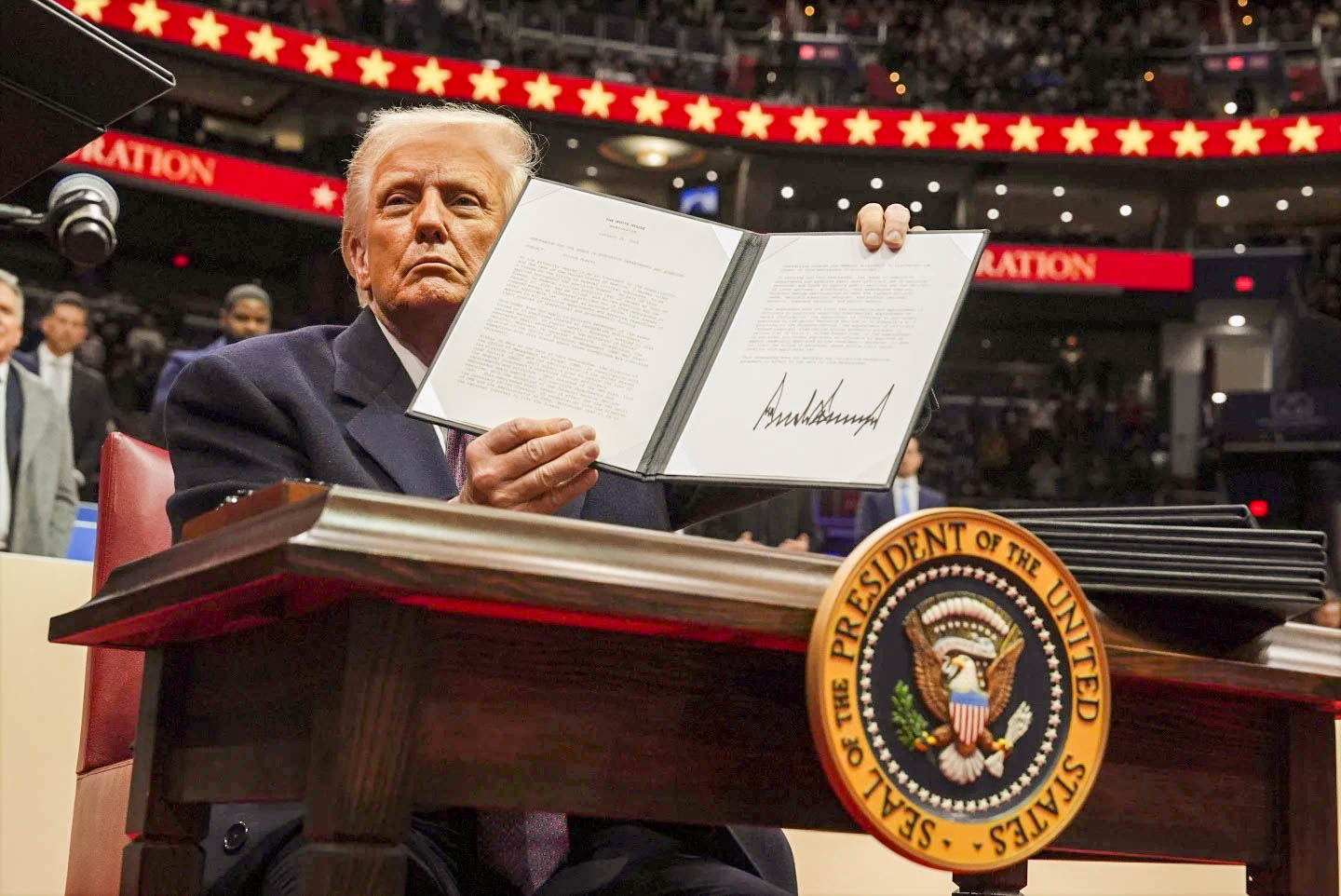President Donald Trump signed an executive order to end federally funded diversity, equity and inclusion programs on Jan. 20, potentially affecting students’ sense of belonging at the University of Rhode Island.
In Section 2 of the White House’s executive order titled, “Ending Radical And Wasteful Government DEI Programs And Preferencing,” DEI programs are referred to as “illegal” and “discriminatory.”
The order instructs all federal agencies, departments and commissions to terminate DEI programs “to the maximum extent allowed by law,” within 60 days of the order’s signing. Offices and positions pertaining to environmental justice were also included in this order.
Restrictions on DEI funding could pose challenges for the university, according to Thupten Tendhar, the co-director of URI’s Center for Nonviolence and Peace Studies.
“I think that it’s very important that students’ needs are fulfilled and that is not controlled by, you know, just one power or one view,” Tendhar said. “If that is something helpful, [the Center for Nonviolence and Peace Studies has] the capacity and understanding to offer our help in any way.”
While Tendhar’s work is not directly impacted by the DEI ruling, he emphasized the importance of a diverse education. The Center for Nonviolence and Peace Studies offers workshops on respect, human rights and dignity, which Tendhar believes are crucial to understanding the need for DEI services.
“Difference is not equal to deficiency,” Tendhar said. “Difference is something that brings more color to the world and I think that’s how the world becomes rich.”
These executive orders affect individual members “on a deeply personal level,” according to an email from Markeisha Miner on Jan. 31, the vice president of the Office for Community, Equity and Diversity.
The OCED aims to promote inclusivity and belonging at URI through a variety of campus organizations, according to its website.
“No office can do this work alone,” Miner said in the email. “It takes each of us doing our part [to create an inclusive culture at URI].”
The OCED has received support from the Gender and Sexuality Center, the Center for Military and Veteran Education, the Multicultural Student Services Center and the Women’s Center, according to Miner’s email. This will allow the OCED to continue efforts by providing programming, resources and support for all members of the URI community.
“Our commitment to our community and to fostering an inclusive culture has not changed,” Miner said in the email. “It’s everyone’s responsibility to make URI a place where each member of the community, regardless of background or perspective, feels included and finds a true sense of belonging.”
One challenge the OCED faces from the order is making space for fostering an inclusive culture, Miner said in the email.
To keep URI’s foundational values under new executive orders, the OCED office plans to work with each center to learn about community member’s backgrounds, experiences and perspectives, Miner said in her email. Additionally, the centers will celebrate everyone’s contributions to creating an inclusive culture for URI through the Inclusive Excellence Awards held in April.
The university considers themselves to be a diverse, welcoming and globally engaged community in service to Rhode Island, according to a university statement on Jan. 28.
“URI will continue to serve and support all learners while positively impacting our state, our nation and the world through our research, teaching and outreach,” the Jan. 28 statement said.
For information and community resources, the OCED is available at 401-874-7077.





